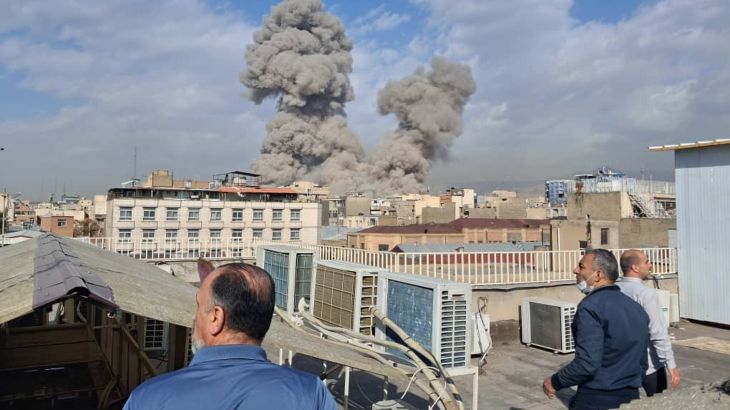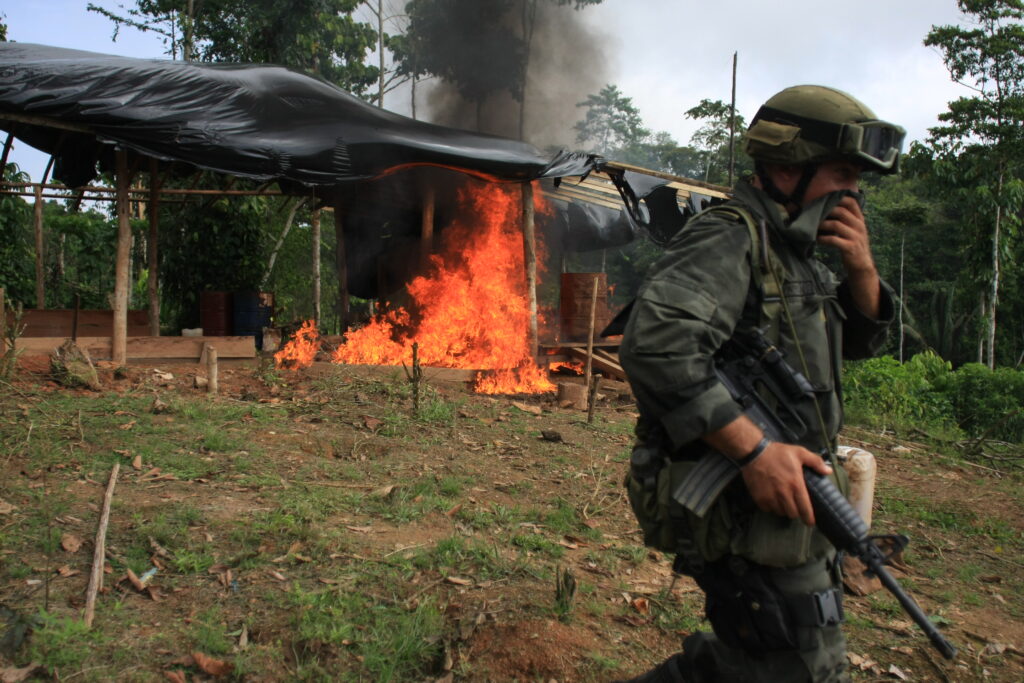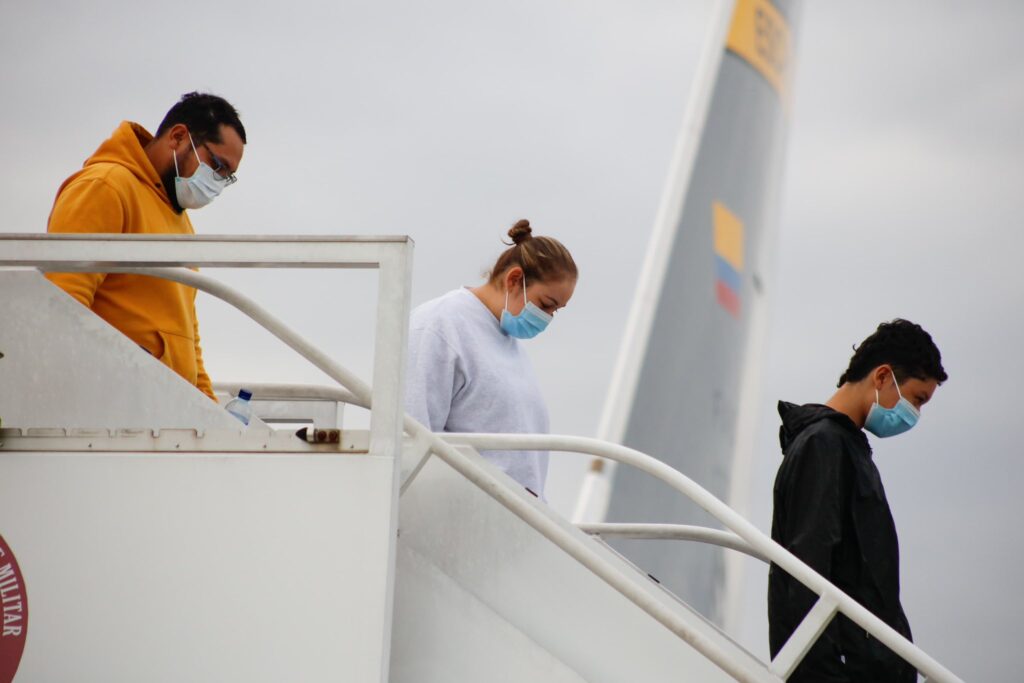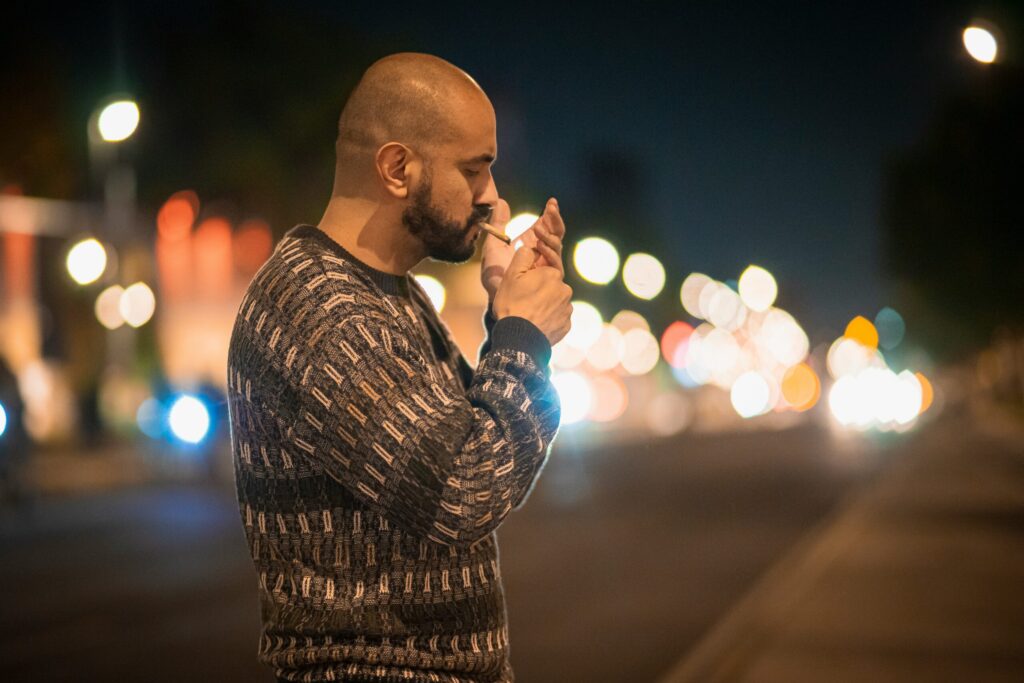At an abandoned airstrip in Tibú, a town in Colombia’s northeastern Catatumbo region, Jaime Botero dons a bright Hawaiian shirt and shorts.
Surrounded by family and colleagues, the president of the local Association of Communal Action Boards (ASOJUNTAS) explains that the town of roughly 50,000 has reached a tense calm after weeks of violent conflict.

Since January 16, clashes between rival armed groups in the region have triggered Colombia’s worst humanitarian crisis in decades.
They began when a truce collapsed between the National Liberation Army (ELN) and the Frente 33, a dissident group of the Revolutionary Armed Forces of Colombia (FARC).
In response, the Colombian government declared a state of emergency, deploying 10,000 uniformed police officers and soldiers in an attempt to stabilize the region.
According to the latest estimates, some 54,000 people have been displaced in the Catatumbo, 32,000 confined and up to 80 killed since January.
The violence has especially impacted young people. Some 47,000 children are unable to go to school due to displacement or confinement.
As a senior community leader, Botero has dedicated himself to providing opportunities to local children.
“The most important thing is that the children continue studying, we don’t want them to lose time out of their studies,” he told Latin America Reports.

In Tibú, missing school can have serious consequences.
Botero’s brother, Henry, explained that without educational opportunities, children as young as nine or 10 may end up working in illicit economies.
“There are many children who, if they don’t get an opportunity, they go out there to the mountains to work, to cut coca,” Henry said.
As well as being drawn into the cocaine trade, child soldier recruitment is also on the rise in the Catatumbo, as local armed groups seek to expand their ranks.
According to a recent report by International Crisis Group, rebel forces use social media to glamorize a life in arms. They sell boys on a lifestyle filled with guns, money and motorcycles and girls on empowerment, love and even cosmetic surgery.
But once they have been recruited, child soldiers are often given basic training and sent to fight far away from home so that they cannot escape. Many are subjected to sexual exploitation and starvation. In some cases, those who attempt to flee are executed.

In recent years, Colombia’s Ombudsman’s Office has issued warnings about the risk of illegal armed groups recruiting minors in Tibú and nearby cities.
Jaime Botero claimed that he had not been alerted to any child recruitment in urban Tibú, but that it may be a problem in more rural areas.
He also explained that the root cause of recruitment is economic.
“If there are many children on the street and they are not doing anything, there is no work, unemployment is a daily problem… and they have no food at home, it is easier to lure them into the groups,” said the community leader.
For Botero, the solution to the threats faced by children in Tibú is to provide opportunities through education. He has overseen the development of a school for some of the community’s poorest children, including victims of displacement.
By coordinating donations from a range of NGOs, Botero has helped to create a campus for some 600 elementary school children.
Walking around the school, the community leader listed off NGOs that he has been courting and coordinating with to complete the project.

“The cafeteria, Action Against Hunger built it for us last year… International Red Cross donated the water tank and filter,” he said, pointing to shiny plaques bearing various NGOs’ names.
Botero also highlighted a classroom built by Colombia Transforma, a development project backed by USAID funds which have now been put on pause.
He explained that the community will feel the impact if the project cannot replace the funds that U.S. President Donald Trump froze in his first 24 hours in office.
“Well, if they cancel the project, resources would be lost, resources that would be used to help the neediest communities, the most vulnerable communities, would be lost,” warned Botero.
But Tibú’s community leaders are confident that they can continue to provide for children in the town.

Henry, who worked alongside his brother building the school, described the hands-on role that the community has played in the project.
“We have done everything here through our own efforts. The community itself, ourselves as leaders,” said Henry.
He praised the NGOs for providing supplies and funding, but stressed the importance of community action — coordinating the aid and providing manual labor to build the school.
Back at the airstrip, which Jaime Botero is lobbying the government to repair to be used for commercial flights, about a dozen local children are rollerblading, cycling and scootering down the tarmac.

Despite being raised amid endemic conflict, children in Tibú have the same dreams as children anywhere else.
In between rollerblade races, one girl said that she loves art class at the local school and wants to be a painter when she grows up. One of the boys said he wants to be a firefighter.
Later, Jaime Botero took his seven-year-old daughter for a motorbike ride down the runway.
He is also able to look beyond the conflict and exploitation that has dogged his home for so many years. Botero remains proud of his town, his region, and his people.

“Look how beautiful it is,” said the community leader, stopping at the end of the tarmac and gazing out at the lush jungle whose riches have driven decades of bloodshed.
“There’s more than just violence here. Here the people are humble, hard-working.”
Featured image description: Jaime Botero pointing at a plaque installed by NGOs. Credit: Alfie Pannell.











